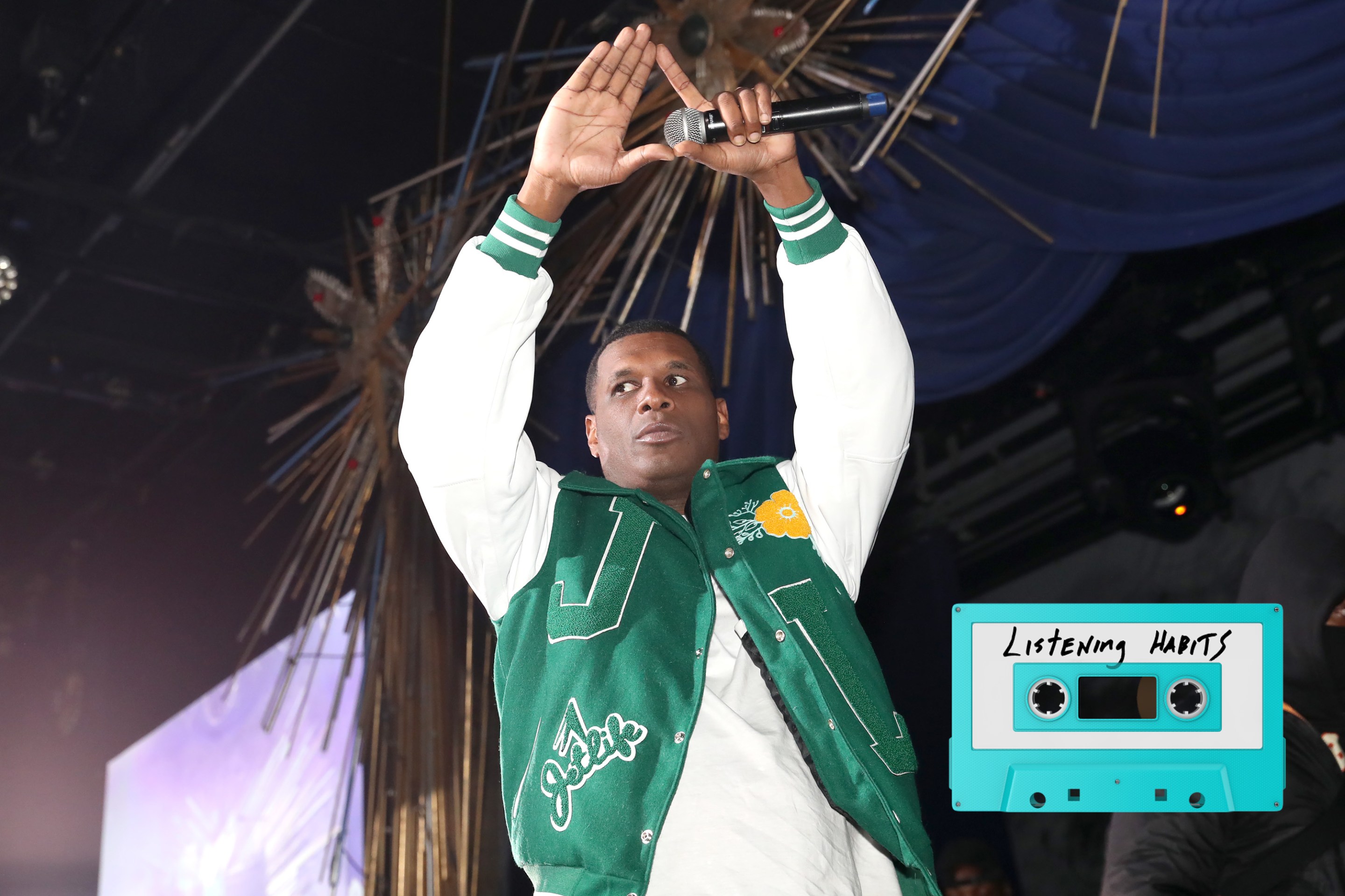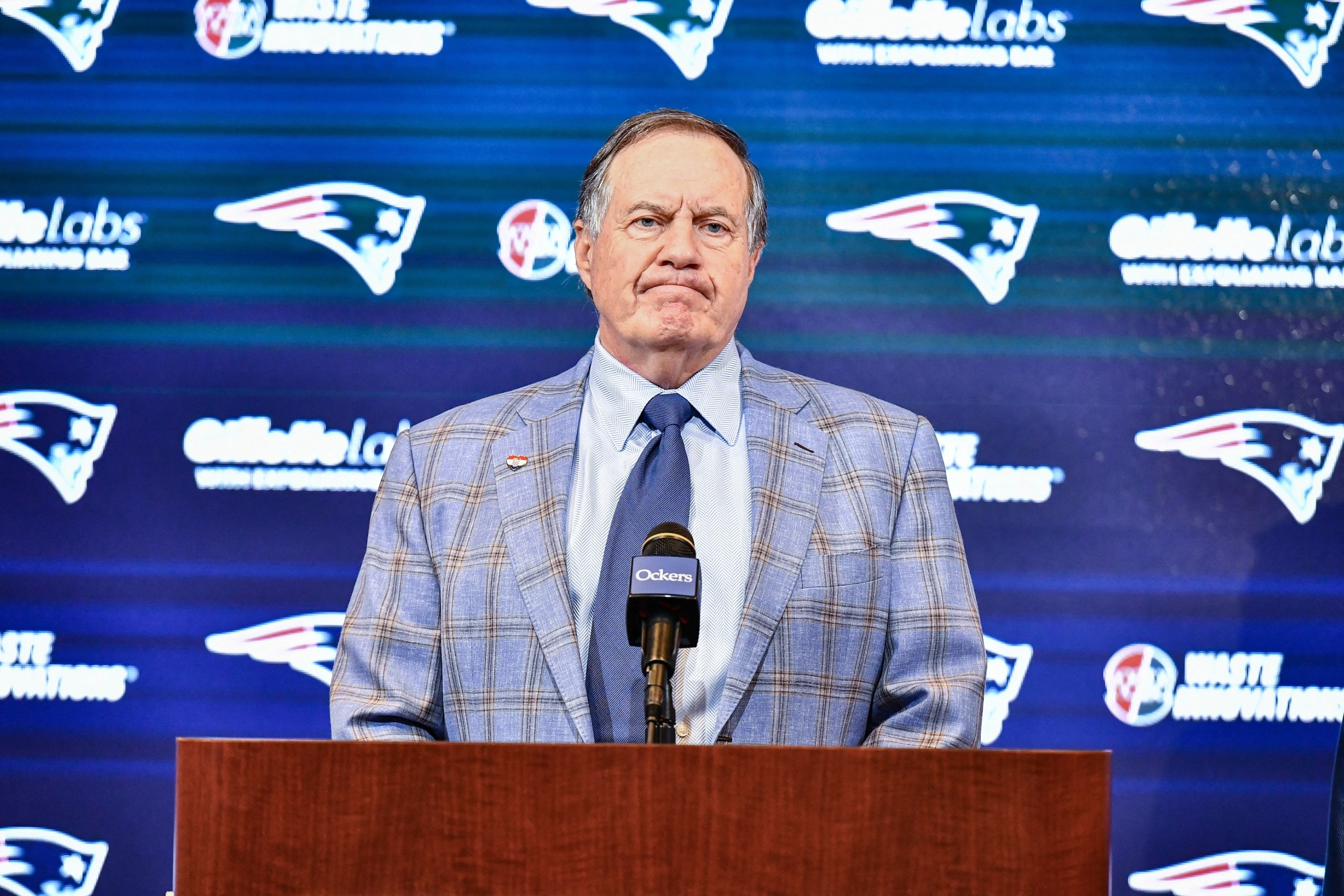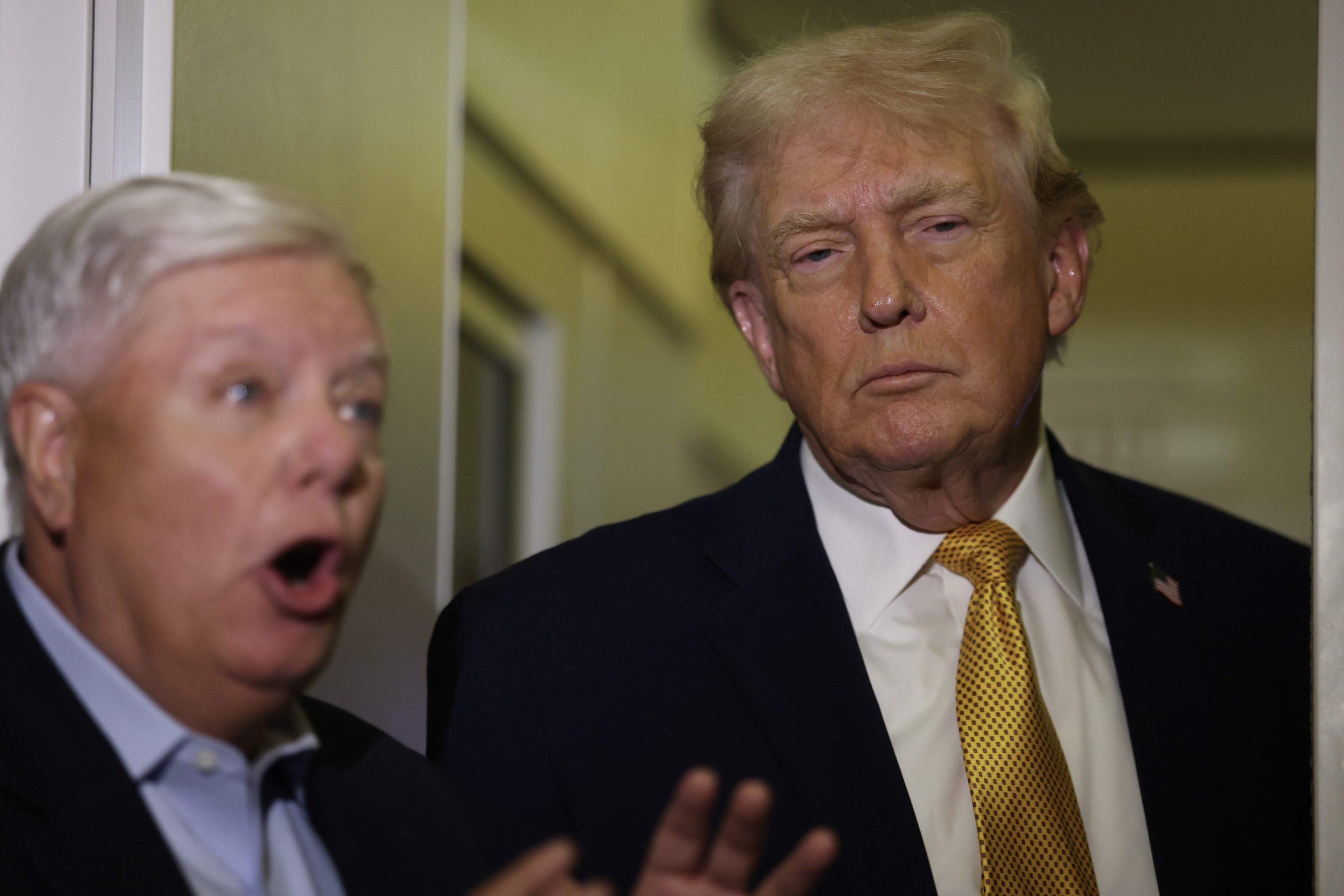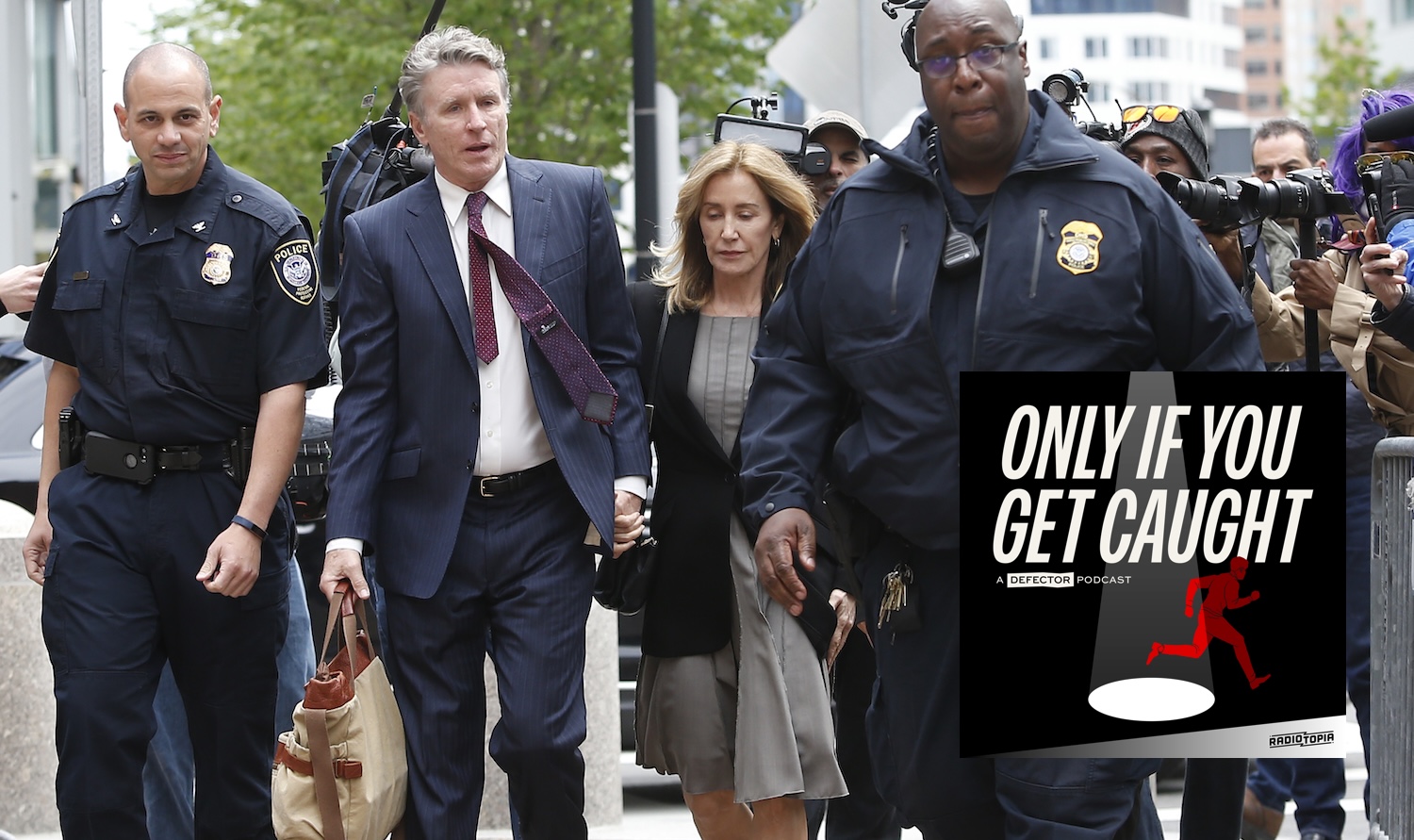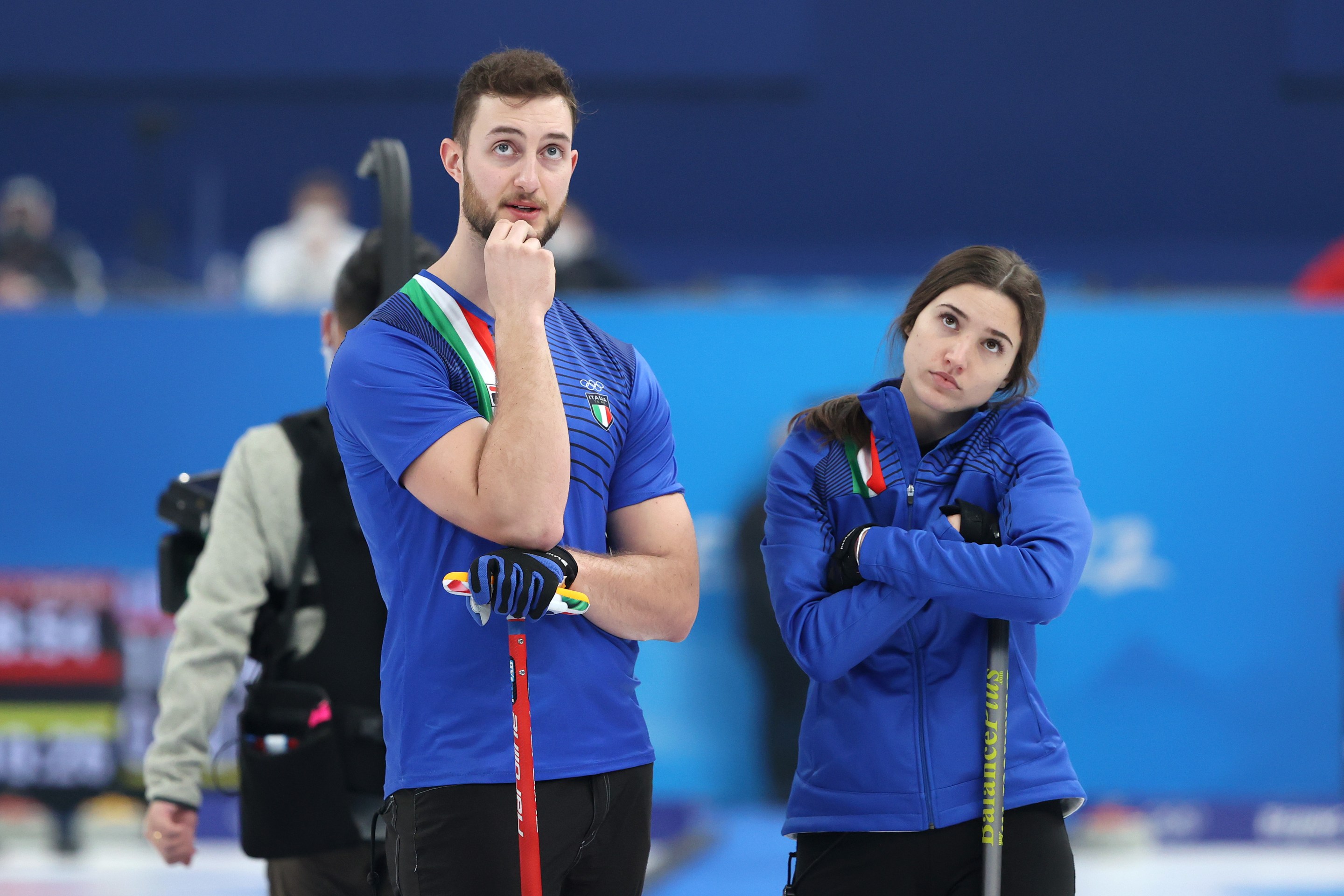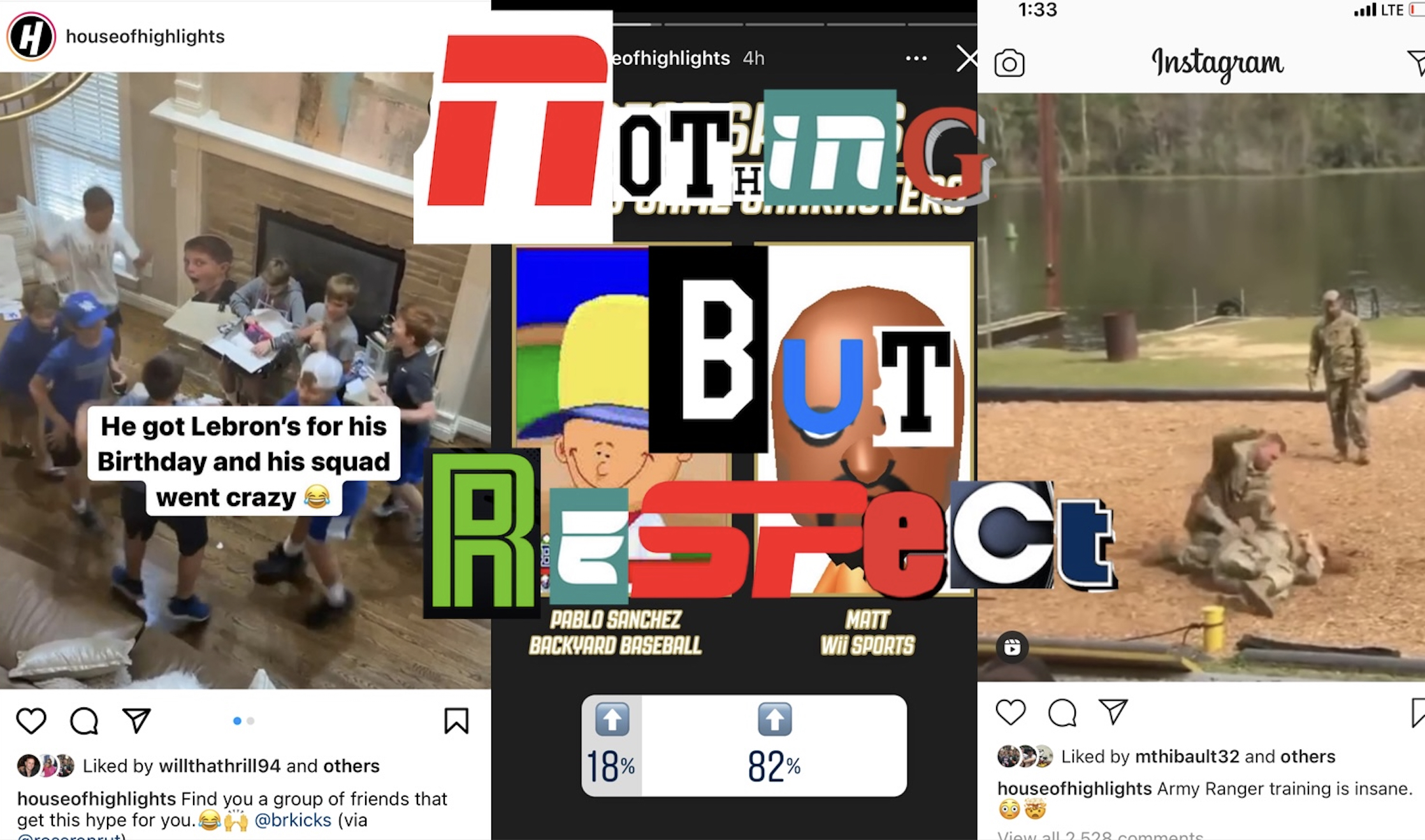Welcome to Listening Habits, a column where I share the music I’ve been fixated on recently.
Let's talk about Bars, son. What is the state of Bars in 2025? Do they still exist? Do they matter? Jay Electronica certainly believes so: He has descended from the mountaintop carrying two stone tablets—er, two albums and an EP—which purport to contain the words of the most high. Over the past week, the reclusive rapper has released the albums A Written Testimony: Leaflets and A Written Testimony: Mars, The Inhabited Planet, as well as the EP A Written Testimony: Power At The Rate Of My Dreams. As a bonus, he also re-released Act II: The Patents of Nobility, which was originally recorded around 2010, for digital service providers. The three new projects are his first release since 2020's A Written Testimony, and his first official album that isn't 50 percent Jay-Z verses.
Jay Electronica is a mysterious figure in rap: a New Orleans–born emcee who figures prominently as a member of the Nation of Islam and carries the mystique of an MF Doom–like character, lurking in the shadows, unrestrained by the machinations of the music industry. Almost the entirety of the height of his buzz was marked by silence. After his Act I: Eternal Sunshine mixtape made him an instant underground darling in 2007, Jay didn't put out a single project until his joint album with Jay-Z in 2020. When he does rap, or release rap songs, they follow the same guideposts: spoken-word samples from movies or speeches by NOI leaders; rhymes about conspiracy theories, God, and UFOs; and usually a lot of references to magic. But what has preserved his prestige and allure over the years, in spite of the paucity of actual music, is how great the music he does release tends to be.
Jay is an exceptional, technically gifted rapper. Despite being from Louisiana, he doesn't have much of an accent—just a deep voice and a commanding presence that make his witty, weighty lyrics feel like sermons from a prophet. He has all the things you expect from a top-tier rapper: a unique point of view and approach, layered rhymes and intricate wordplay; a baby with Erykah Badu. The fact that he rarely puts out a song, let alone a project, yet maintains deep connections with major figures within the industry has the effect of turning his releases into major events. He has used that mystery effectively to create a persona that is both contradictory and paranormal. Is he a man or an alien? How is he part of the Nation and yet once dated a Rothschild? Is he a conspiracy theorist? Is he just an ultra-conservative?
With these new projects, Jay provides exactly what we have come to expect: more magic, mysticism, and raps that beg to be deciphered. But, speaking for myself, there is something a little uncomfortable about the general Jay Electronica project in 2025. On the one hand, there's an endearing nostalgia to Jay's commitment to being the last artist still doing NOI raps. It hearkens back to golden age of NYC backpack (in the original sense) rap, where Five Percenter lingo abounded and understanding damn near any song required a PhD in Supreme Mathematics. The raps of that age were spiritual and erudite, grounded most deeply in ideas about black self-esteem; they were also conspiratorial and controversial, often with a dash of antisemitism.
Because of the amazing music and the positive sentiments of that era, listeners tended to ignore many of the more negative aspects. But it's foolhardy to pretend that you can still get away with the same worldview today, when things like controversy, conspiracy, and antisemitism have an entirely different resonance. Nevertheless, Jay is all about stirring the pot, not just with his usual Farrakhan raps, but with Diddy apologia and Candace Owens references. Part of the math of this Jay Electronica return is his understanding that the world is a lot more interested in hearing his message as something other than good raps—as something closer to prophecy.
Though still relatively prominent with a certain set of fans, Jay doesn't hold the same mystique he once did. Even an aura as entrancing as his can't remain fully intact after so many years with so little product. I have a hard time imagining anyone under 30 caring much about these releases. The fact that there's production from Hit-Boy and Conductor, as well as an appearance by Westside Gunn, only reinforce the sense that this album is mostly for the middle-aged crowd. There is still enjoyment to find in listening to Jay, at least on the surface. His voice is still great, his raps are mostly still sharp, and he still knows how to pick beats that fit the grandiose, enigmatic vibe he cultivates so well. But the second you start to think about what you're hearing his trick loses its magic. The religious, conservative black nationalism Jay stumps for here is harder to stomach in 2025, when it's hard not to see it as simply the black version of an ideology that is doing so much harm.
Despite, or maybe because of my own religious upbringing, I am much more enticed by the secular philosophizing of Earl Sweatshirt, whose most recent album Live Laugh Love has satisfied much of my Bars desires lately. Earl, jaded though he may be, accepts the messiness of life while still looking to find the beauty in it as it comes—a welcome contrast to Jay's search for definitive, doctrinaire answers to all questions. Knowing Jay, it's probably no coincidence that he chose the weekend before the supposed rapture to re-emerge. On one of his new songs, Jay claims to have submitted 19 completed albums to his label. Personally, though, I don't expect to hear from him again until the next promise of a cataclysmic event.
A Word On The Ending Of Highest 2 Lowest
Older generations having strong negative opinions about rap is hardly a new phenomenon. In fact, the genre has been around so long now that many of the older people who complain about contemporary rap were themselves rap fans back in their day. Spike Lee is part of this category, as is Chris Rock and Aaron McGruder, the creator of The Boondocks. As artists, they have all made commentaries on their dissatisfaction with certain aspects of rap. This is all fine, and usually it's done humorously and well, even if I don't fully agree with their perspectives. Chris Rock's bit about defending rap is funny. Thugnificent and Gangstalicious on The Boondocks are funny. Chappelle's Show sketches are still funny. Spike's Bamboozled is a million things, and an upsetting movie that is also really funny.
Criticism of rap is not Highest 2 Lowest's problem. Its problem is that instead of humor we are left with a moralizing finger wagging in our face about what we've done to ruin Black Excellence™️. Nowhere is this more apparent than in the film's ending, which includes a ridiculous ASAP Rocky music video that includes multiple women with exaggerated BBLs dancing around (funny, sorta) and Denzel's character, David King, kinda excited to see this rapper who tried to kidnap his son get locked up, in a way that also indicates a tacit endorsement from the film itself.
On the one hand, Rocky's character Yung Felon did commit a serious crime, and regardless of my feelings about the prison system, it makes sense for him to be punished. But two things really hammer home the conservatism here, this "Pound Cake" speech in movie form. The first is the last scene between King and Felon, where Felon makes the argument that this whole situation has made him the hottest rapper in the city, and that King should sign him and revitalize his label, giving them the thing they both want: Felon finally working with a mogul like King, and King making his label as hot as it once was. Honestly, not the worst argument in the world, but King rejects it because he has come to realize all money isn't good money, and that getting in business with this kind of rapper would be to compromise his soul. Sure, whatever. It's a lazy idea, but within the framework of the story it makes sense. I could have forgiven it, if not for the second thing.
The true ending of the movie happens in King's lavish penthouse, his paradise of black success, full of paintings by Basquiat and Kehinde Wiley, and images of Toni Morrison, Stevie Wonder, and Prince. A young, light-skinned lady comes to audition for King as he starts up a new label, which is getting back to the basics. She auditions with an awful rendition of the type of bland Alicia Keys or John Legend song that Target would acquire for one of its commercials. She is a "good singer" in the most boring way, what Teddy Riley used to call the Apollo high note: when a person hits that Mariah Carey, Whitney Houston note and wins the competition by simply being capable of it. Predictably, King is transfixed by this rendition and wants to sign the singer immediately. The movie thus ends on its true message: Rap is too far gone, too ignorant, too money-obsessed, too embarrassing, and it's time to Make Black Excellent Again.
One of the worst things about the Trump era is that even the people who are ostensibly against him have adopted his attitudes and way of communicating their own messages. This ending is Spike Lee's most Trumpian statement on the state of black art. It's not exactly new coming from him, but at least he previously knew to use humor to couch his conservatism. Now it seems he's no longer laughing, just preaching.
The Best Non-Rap Song Of The Moment
"Dimmed Sun," by The World is a Beautiful Place & I am No Longer Afraid to Die
If you would like to contribute something or ask a question for future installments, email me at israel@defector.com.
